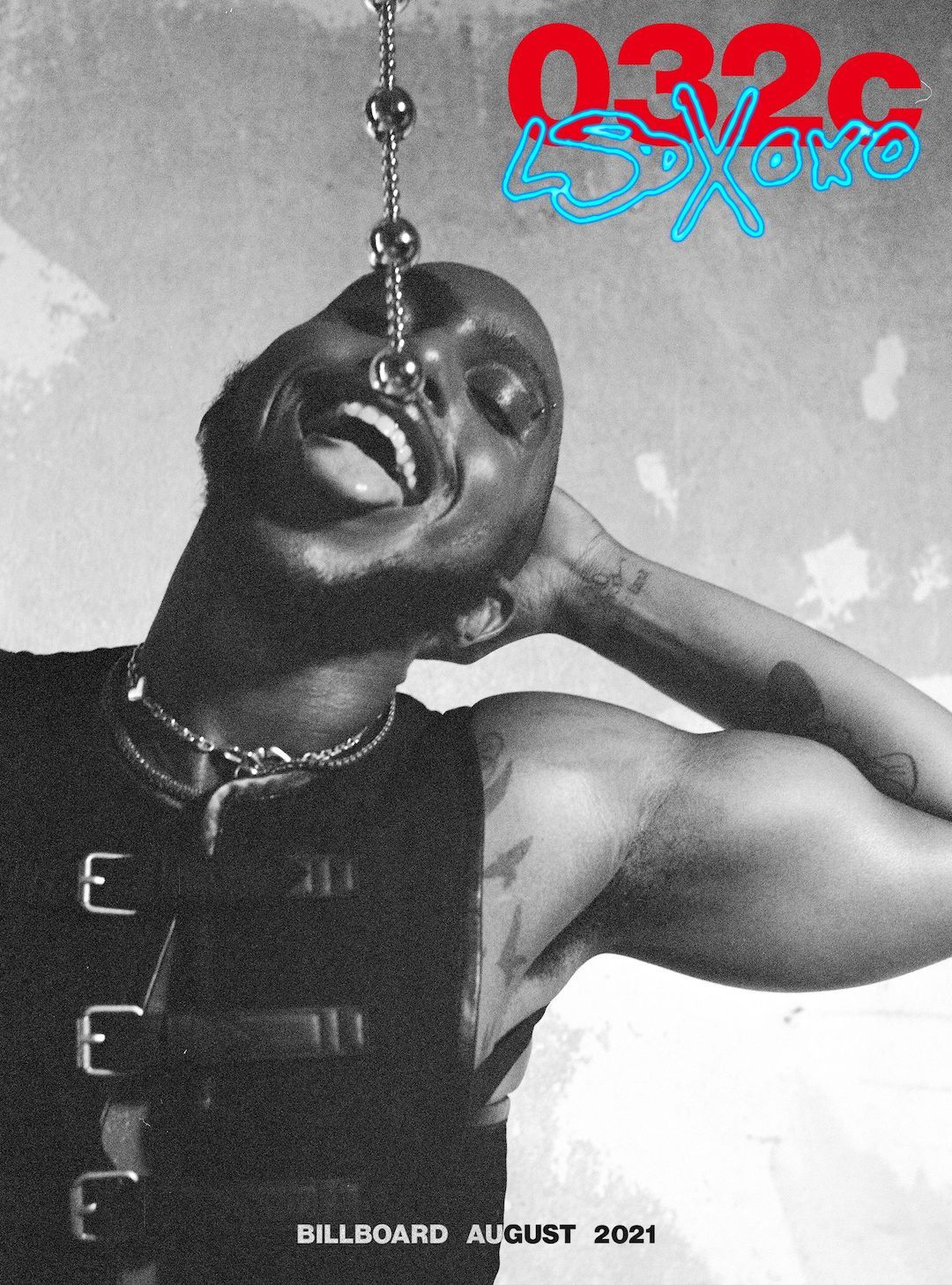KRISTEN STEWART Fanzine
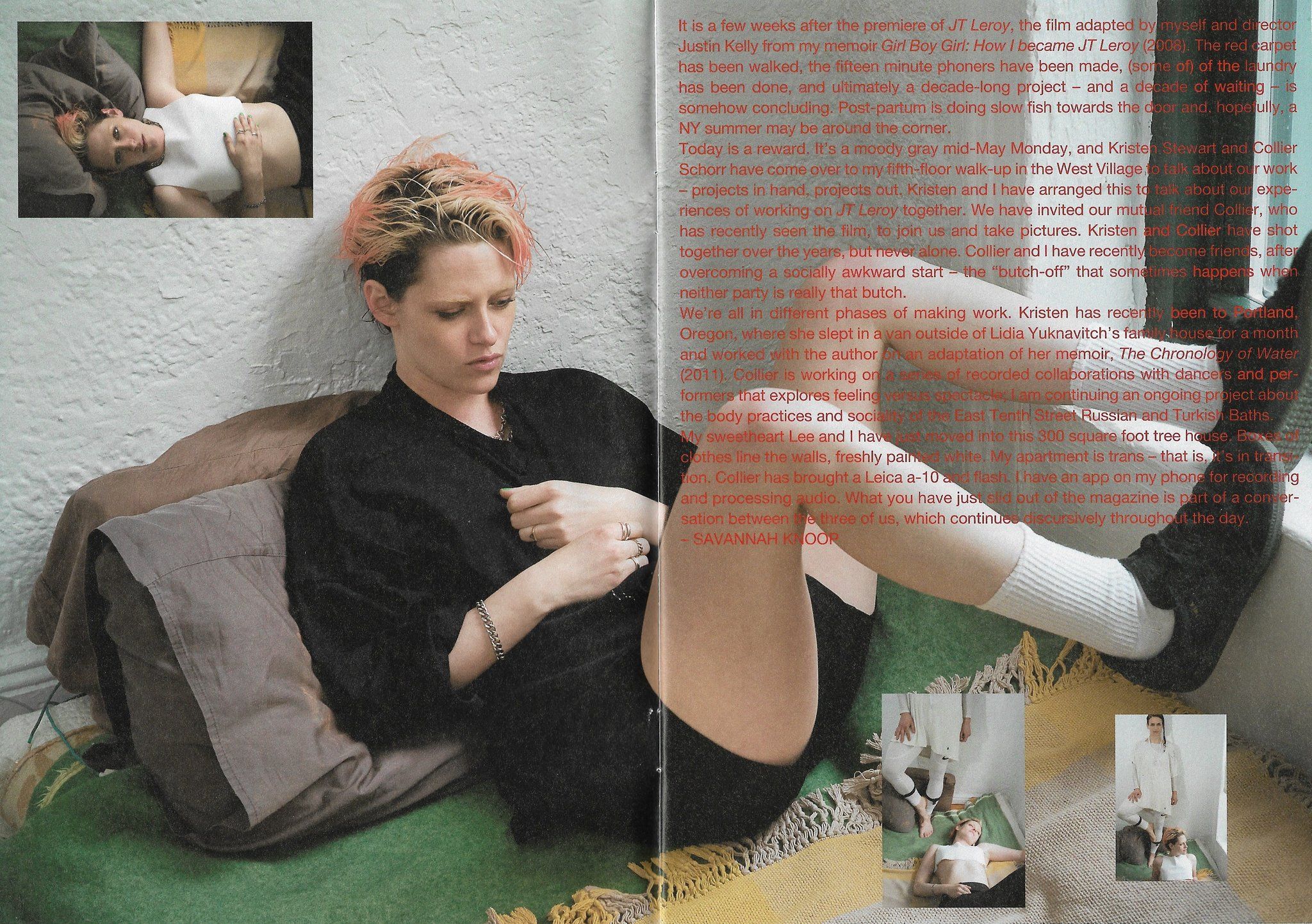
As Oscar buzz aggregates in the wake of Kristen Stewart’s performance as Princess Diana in Spencer, we revisit our 032c Issue #36 KRISTEN STEWART FANZINE: a three-way exchange of ideas and roles featuring the Twilight star turned queer icon, shot by Collier Schorr and hosted by Savannah Knoop. Grab your physical copy in our STORE.
“It is a few weeks after the premiere of JT Leroy, the film adapted by myself and director Justin Kelly from my memoir Girl Boy Girl: How I became JT Leroy (2008). The red carpet has been walked, the fifteen minute phoners have been made, (some of) the laundry has been done, and ultimately a decade-long project – and a decade of waiting – is somehow concluding. Post-partum is doing slow fish towards the door and, hopefully, a NY summer may be around the corner. Today is a reward. It’s a moody gray mid-May Monday, and Kristen Stewart and Collier Schorr have come over to my fifth-floor walk-up in the West Village to talk about our work – projects in hand, projects out. Kristen and I have arranged this to talk about our experiences of working on JT Leroy together.
We have invited our mutual friend Collier, who has recently seen the film, to join us and take pictures. Kristen and Collier have shot together over the years, but never alone. Collier and I have recently become friends, after overcoming a socially awkward start – the “butch-off” that sometimes happens when neither party is really that butch. We’re all in different phases of making work. Kristen has recently been to Portland, Oregon, where she slept in a van outside of Lidia Yuknavitch’s family house for a month and worked with the author on an adaptation of her memoir, The Chronology of Water (2011).
Collier is working on a series of recorded collaborations with dancers and performers that explores feeling versus spectacle; I am continuing an ongoing project about the body practices and sociality of the East Tenth Street Russian and Turkish Baths. My sweetheart Lee and I have just moved into this 300 square foot tree house. Boxes of clothes line the walls, freshly painted white. My apartment is trans – that is, it’s in transition. Collier has brought a Leica a-10 and flash. I have an app on my phone for recording and processing audio. What you have just slid out of the magazine is part of a conversation between the three of us, which continues discursively throughout the day.”
– SAVANNAH KNOOP
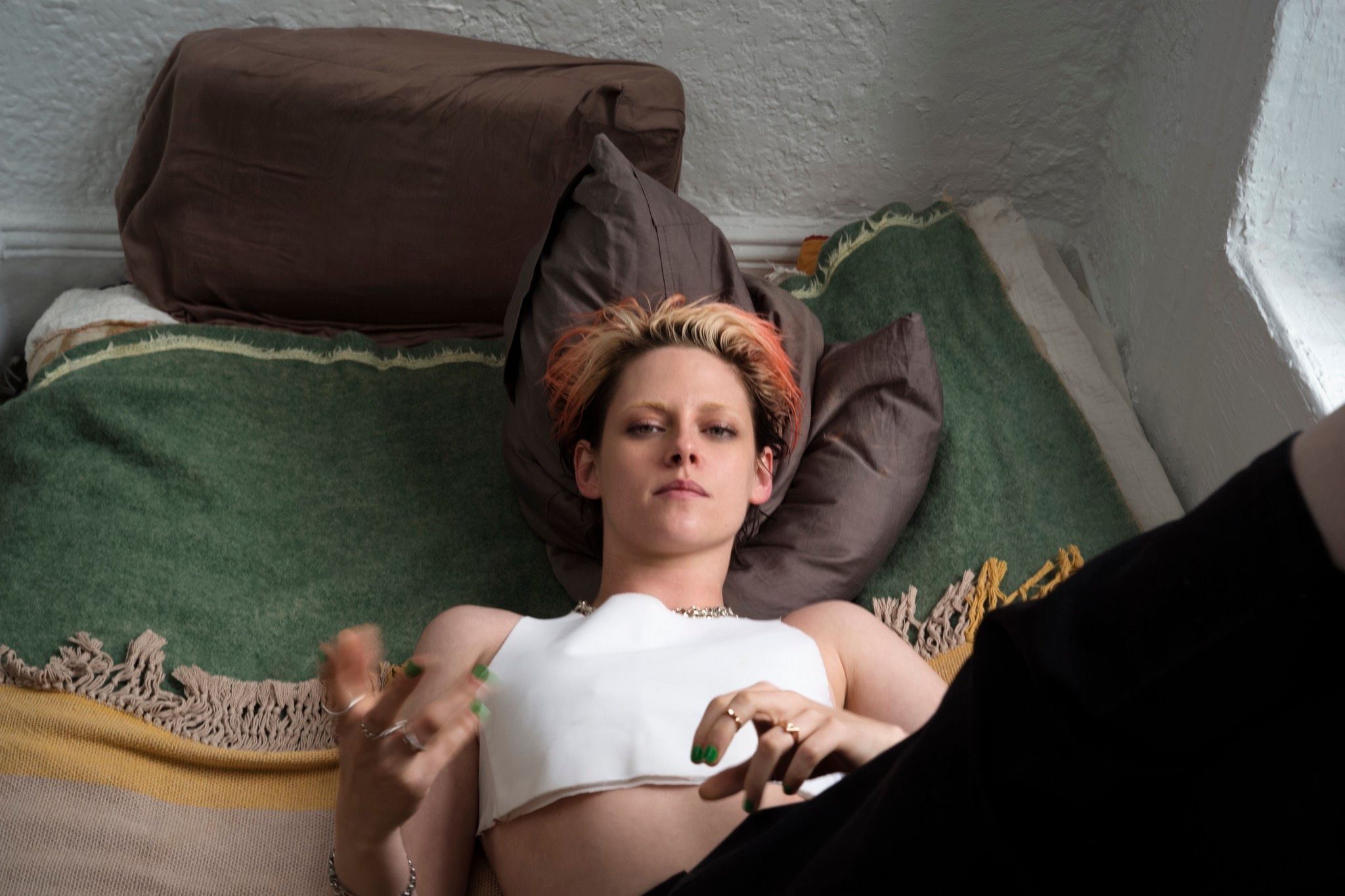
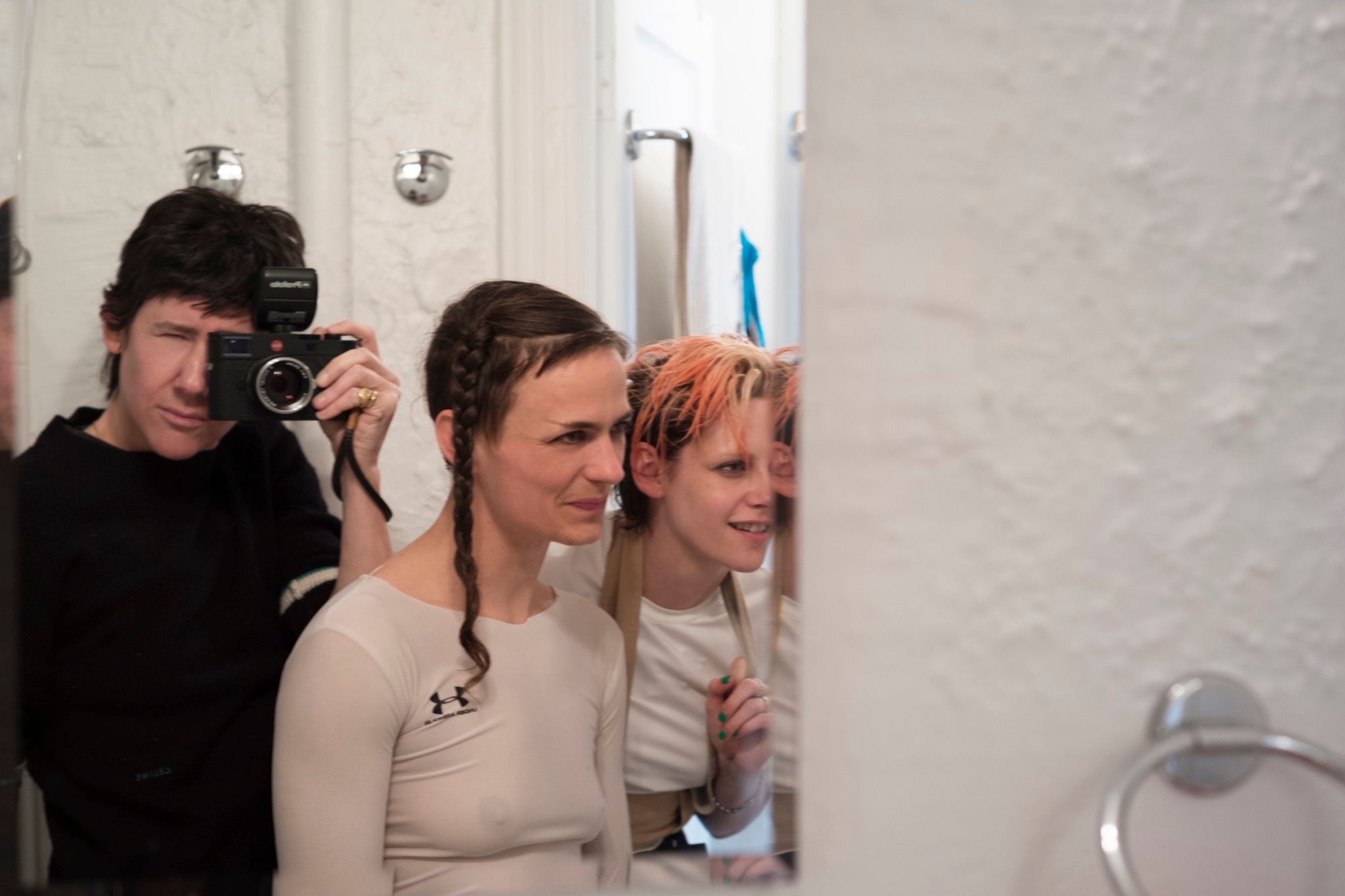
KRISTEN STEWART: Usually, as soon as the thing goes on, the whole temperature changes. And then I’m super aware. But right now, I’m like, “Okay, I can say absolutely fucking anything.”
SAVANNAH KNOOP: Let’s talk about inspirations. Any genre.
K: I love Allan King’s documentaries that seem really cinematic and kind of observant, yet totally composed. A Woman Under the Influence is my favorite movie, [speaking] as an actor and as a writer and director. Morvern Callar is another fucking all-time favorite. The way [Lynne] Ramsay handles time is so unbridled by how we’re used to consuming narratives through film. It’s an externalized internal memory. Like someone’s been turned inside out. Time feels like it’s sliding back and forth.
S: Elastic time.
COLLIER SCHORR: My inspirations are often things that I have a slightly aggressive relationship to, that I feel locked out from. I have that with certain body art from the 1970s. Women artists who were able to be in front of the camera in their work and were exposed and angry and sexual. [After] wanting to work with dancers and performers to remake certain kinds of performative pieces, the next step was being in it.
K: You have to put your own body in it.
C: And I literally have to be okay to be naked in it.
S: Do you feel the camera as an audience?
C: No. I feel the audience as someone that sees exactly what I want them to see.
K: You want to be totally in control!
S: Hard Control! I’ve been thinking about German Expressionism and Buster Keaton a lot. All of last year I was shooting in the East Tenth Street Baths during operating hours. I made a film in collaboration with the regulars, capturing them in their usual body routines, and then I would also have them turn the camera on me, and I would do choreographies that tended to be within the social codes, but just a little bit off. Airplane marshal moves. Fake conducting. With Buster you felt his character so deeply through gesture.
K: Right!
C: I really appreciated the way that Kristen played your character, because I know Savannah as an older person and intellectually I know you as a much tougher person, and when I watch the movie I’m thinking wait, I don’t see that in the character – and then I realize the character’s 18!
K: Yeah. I also didn’t get to meet Savannah when they were that age, but the book gets at a feeling. I was older when I played the part, twenty sii –
S: 27.
K: Yes! Fuck! So I was playing younger, and as a moved-on-from-that-period-of-life person I felt protective of the way you wrote yourself.
S: Of the character?
K: Yeah, of you!
S: Aw.
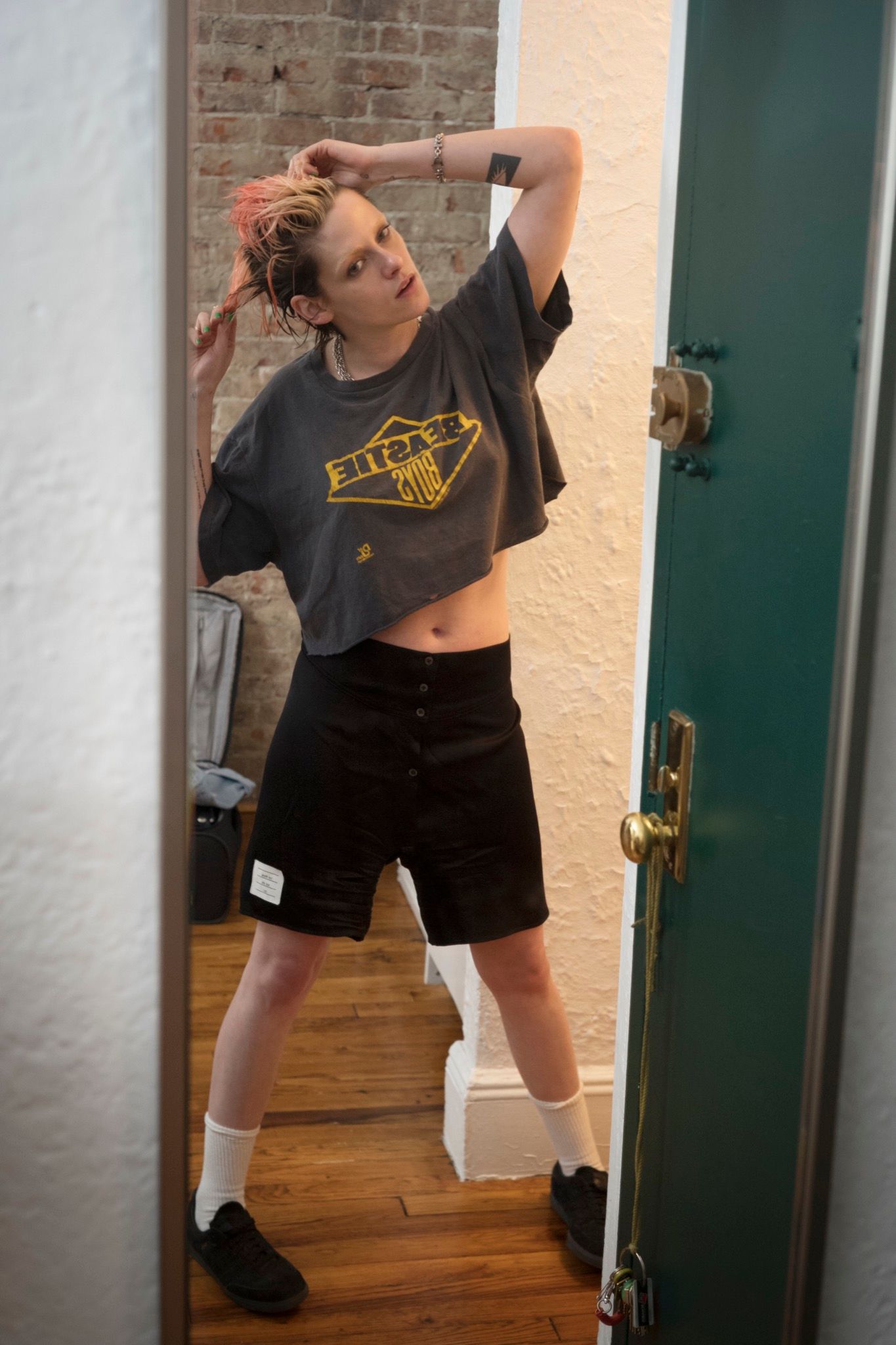
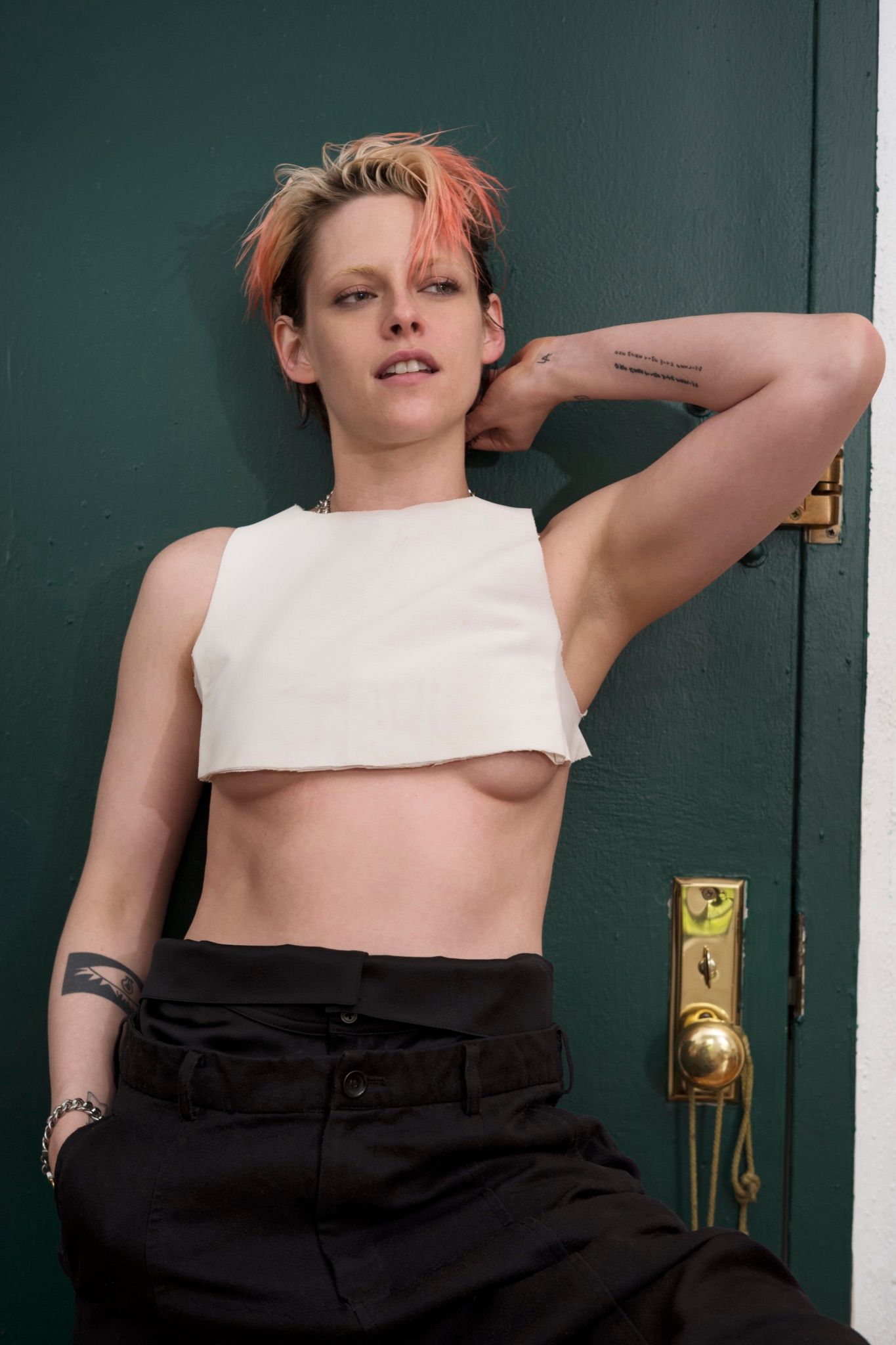
K: At that age there is so much additional discovery. To be the center of the storm, of so much obtuse attention, and to be in that period of transition – and knowing you and how Kristen Stewart wearing the chest binder she wore to play Savannah Knoop playing JT Leroy you’ve come out of it, who you are now, the honesty and the presence and the well-natured thing that you bring into a room – I could just imagine that kid and getting caught up in something like that. Also, you’re somebody who has always been so in their body. Who’s doing their work through their body experience!
S: I appreciate how you play JT in this way that you can feel Savannah bubbling under the surface.
K: That was definitely something I was thinking about in the JT scenes! Even though you feel like one of the most solid motherfuckers I’ve ever met, and you know yourself more than anyone, I think the coolest thing about this story is that it took a minute to get there, you know what I mean? I wanted to make sure that you seemed like you were on your way to something very, very solid.
S: Wow.
C: I think it’s also about how difficult it is for young people, especially young-presenting women, to find agency and power. There is a sense that this character is observing someone who seems to have some power, to have found a way of taking up as much space as she wants.
S: On their own terms. Very appealing!
C: Watching the film, it doesn’t seem like you’re attracted to the trappings of fame. You’re attracted to having an identity that has a sound to it. I just keep on thinking, the entire JT thing is so mediated by Warhol. First of all, how many people made the work? And Warhol had that whole thing where he would hire people to go out and be him.
S: We would reference that all the time – we were always saying, “We could be anybody!” The disguise wasn’t an actual disguise; it was part of a statement of withholding. But also sort of a fuck-it attitude.
K: Also – it sounds so obvious, as in who cares – in the film, when I say, “But I’m a girl,” I feel like, as an audience member, you already know. You’re like, “Gurl, you don’t even realize. It doesn’t fucking matter. Like, dude!” That is one of the most exciting moments to imagine. Obviously, it drove you to be involved in this fucking crazy shit for six years. But what did it really feel like the first time you realized that you could fucking put on anything and perform, and also find reflections of yourself that you might not have known before?
S: I mean, in JT land, that’s it: my whole world is dismantled by that moment – and we hadn’t gotten into all the complicated weird fucked up parts of it yet. It’s also a moment of pure love, pure excitement, pure discovery! The way you’re open to being poured into by your “art heart hero,” as you were saying Lidia calls it, you feel so valuable and so seen. You want to do the best you can. At that age, you are seeking to find something, anything, that you actually care about. It’s potent.
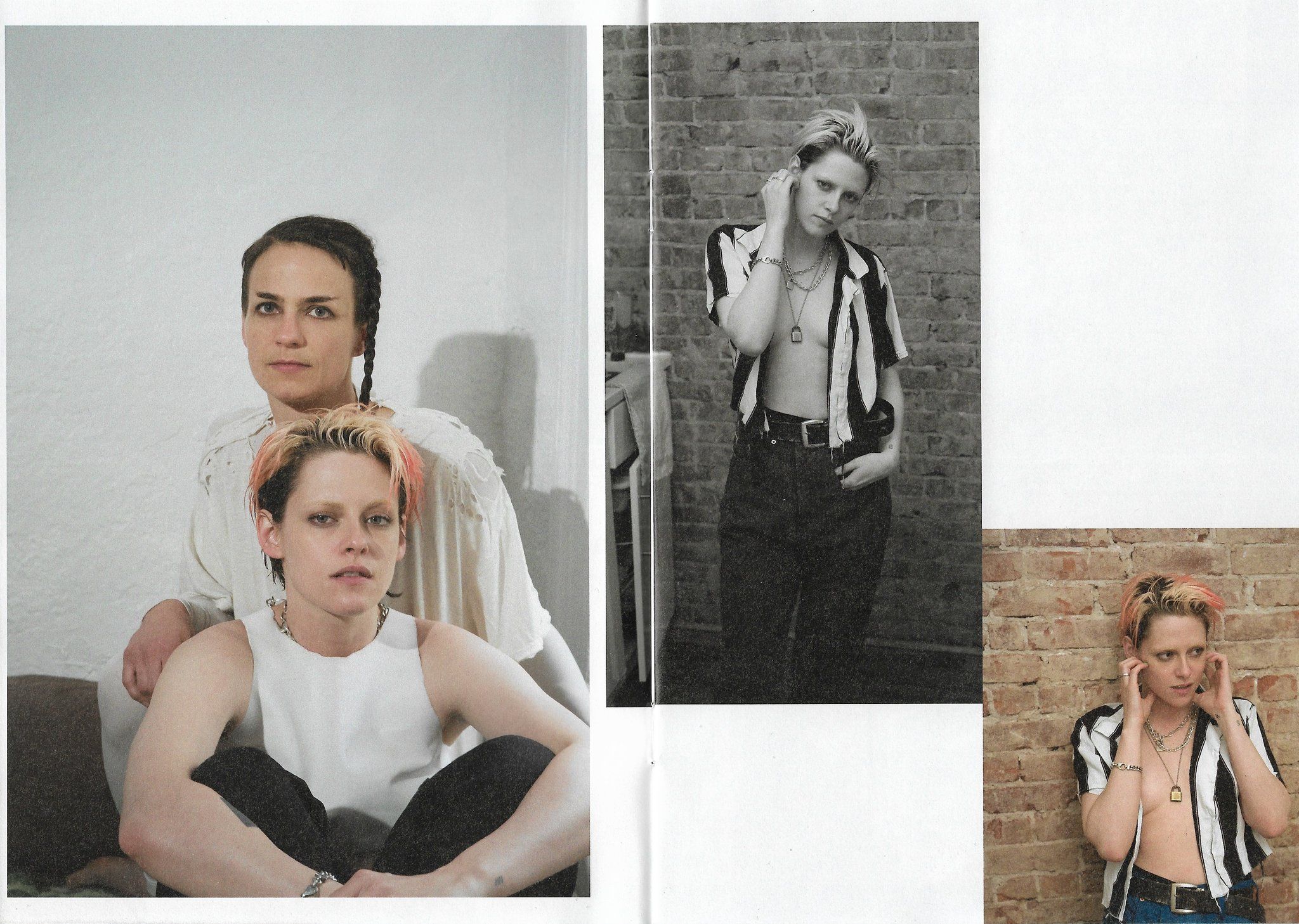
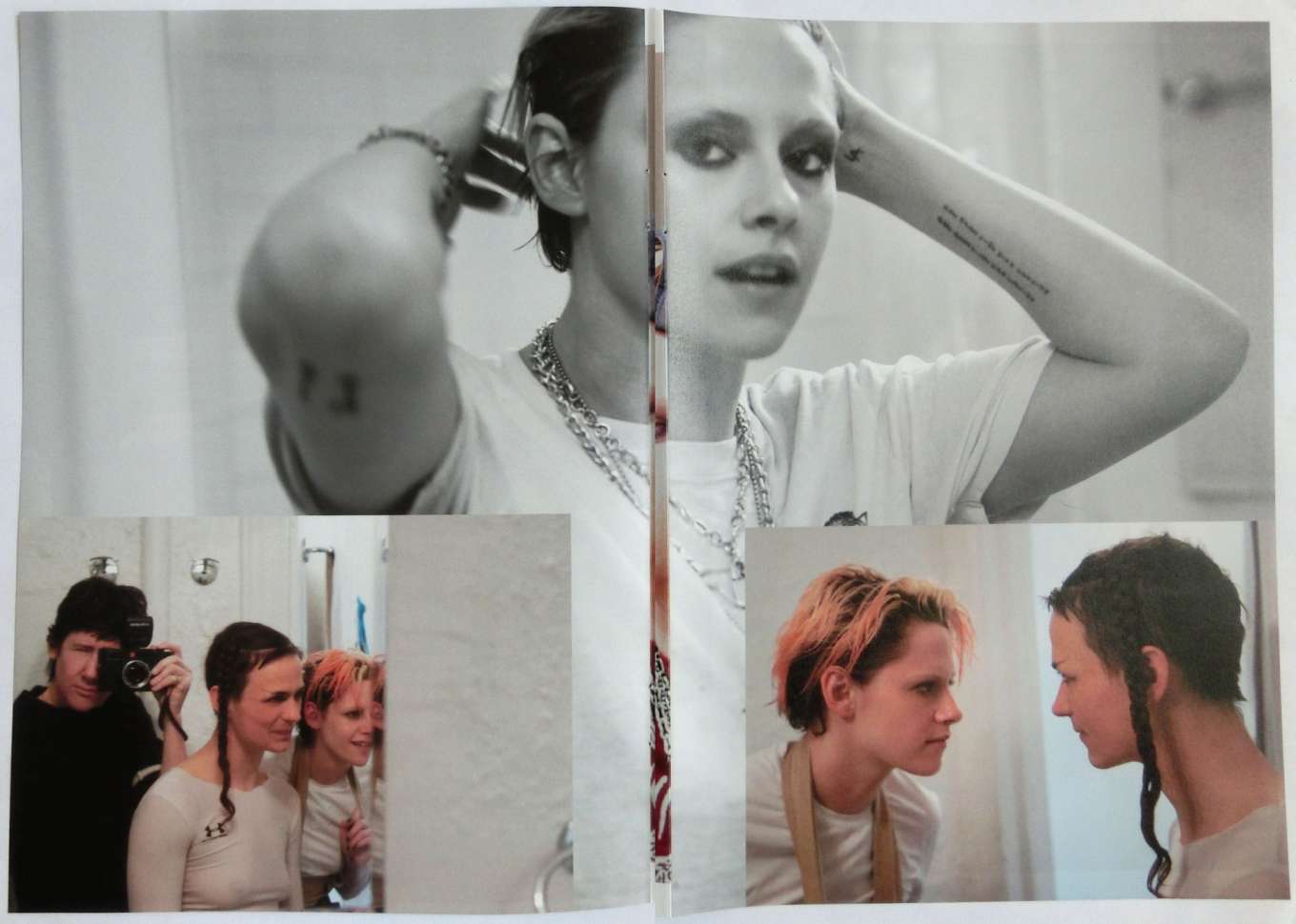
K: If you love artists, it’s really hard as a young person to say or think, “I can do that.” It takes a minute.
S: No one else can say, “You can do your work.” There are no short cuts.
C: Artists kill their parents. Young artists work for older artists and worship them, and go and take their work, and tear it apart and make something new. Truman Capote having lunch with all these women, then writing all about them. They were in uproar. “How could you write about us?” He said “Well, I’m a writer. What did you think I was going to do?”
S: “What am I doing all the time?”
C: All these things tell you that the art practice is vicious; it has teeth. An artist has control over how their thing goes out.
S: It’s sort of all we have! I’m not sure all artists kill their parents. But I agree that art has teeth.
C: What I found interesting about JT is the subtext that people feel a right to own or define themselves by other people’s identities. That people felt so deceived is a sign that some people feel stuck with generic identities and are so turned on by those that don’t.
S: There is the interpersonal aspect of the whole thing, which is different in terms of people feeling confused or hurt by the experience – I think the distinction is made clearly in the film. But in terms of the public, honestly, it’s about social control – as if the public is some friend to watch out for. And I’m thinking, what’s the public ever done for you except control you? It’s never had my best interests in mind.
K: Dealing with the media and publicity is like paying a fucking tax. The bigger the budget for the project, the higher the tax. JT was like a fucking pittance. Charlie’s Angels is a whole other tax bracket.
S: Got to pay the piper!
K: Above being happy or successful or deemed talented, people are so obsessed with celebrity that the jealousy causes real fucking deep resentment and rage in them. Truly. “Wait a second, what made you think you could be famous?” Or, “What makes you different than me? Fucking nothing. You shouldn’t be there. I should.”
C: Also, how much do people enjoy being upset?
K: People love being like, “Fuck you!” Also, the people that might really like you are not on the internet talking shit about you.
S: They’re not trolling.
K: Exactly. Your experience with all this was a little different because the internet maybe wasn’t as crazy yet, but all the same shit was happening. It’s funny – I became really famous at the same fucking age [as you did], in a very different way. I was 18 when it became real.
C: What I think comes out with JT is that there are people who decided to really like someone, but based on only two things: one, this cool book; and two, this cool, young, nonverbal, ambiguously sexual child. These people are just grabbing for a piece, and then getting pissed off rather than saying, “Wow, what was I thinking to be so engaged with this very vulnerable kid, and how much was I willing to give that person and how much was I asking for?”
S: Key. You know how when you see The Lord of the Rings and you slot yourself into different roles? Like, “today I’m an Ent,” or “today I’m a wizard.” Which character are you in our film? I find that I slide around and identify more with certain characters depending on where I’m at. Today I’m definitely Laura.
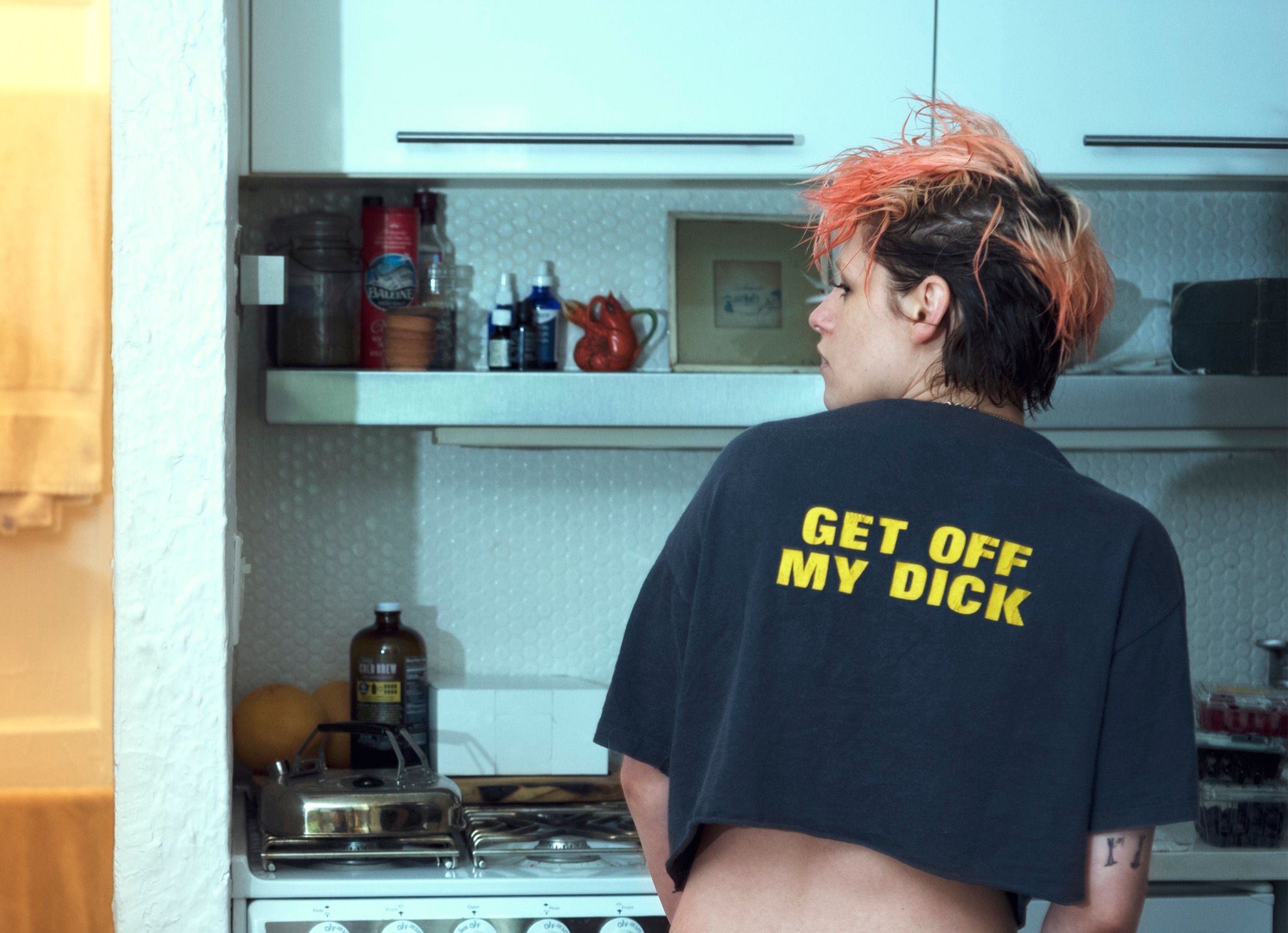
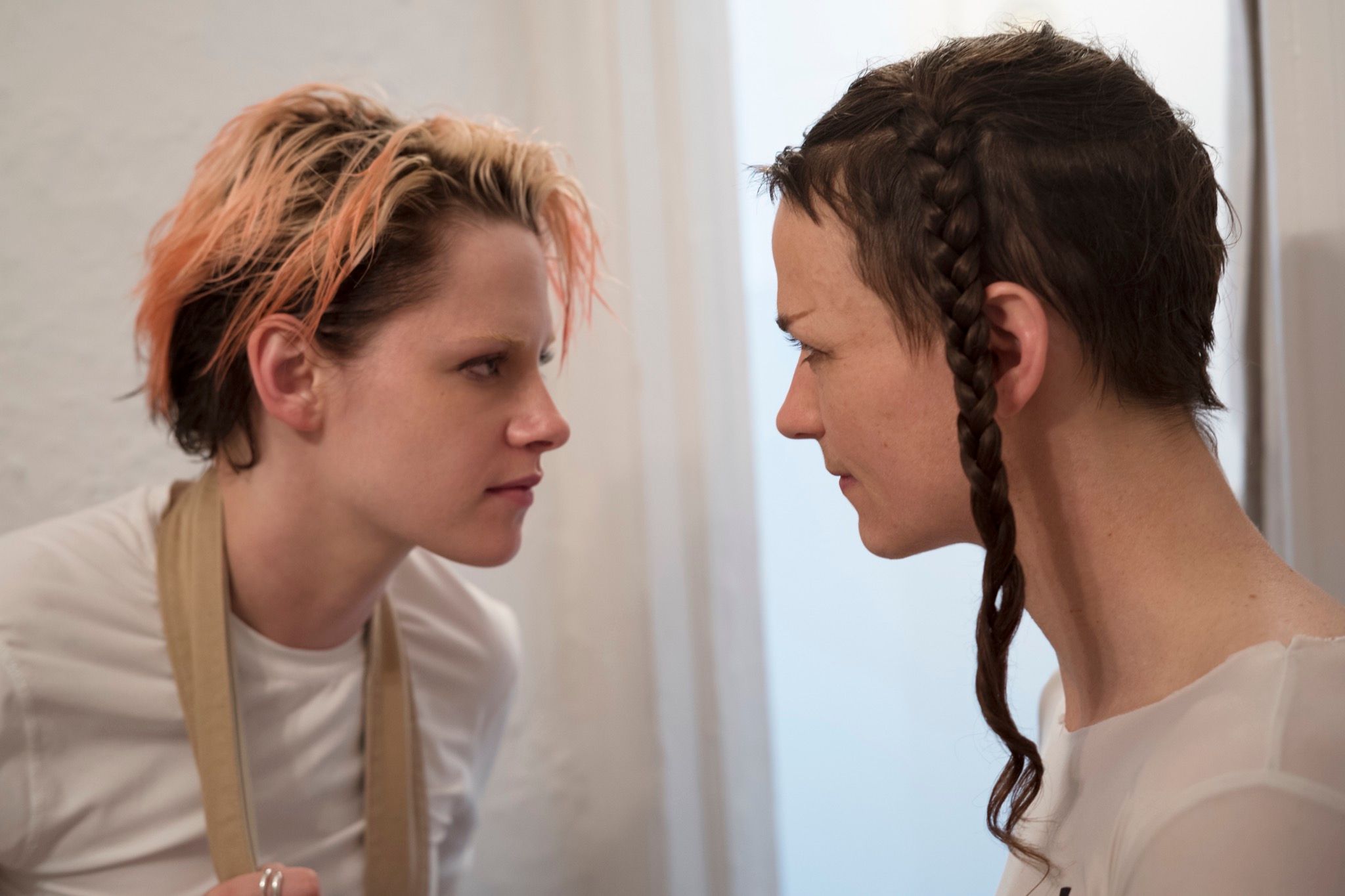
C: I just think we’re all Laura. We want to make something.
K: I was just going to say that too. It’s definitely between Laura and Sav. It depends on if I’m – ready for this? Put this in print. I really, really love being a switch hitter.
S: No role stagnation there.
K: Switch hitting is my favorite. I really want both sides.
S: Yeah. You learn so much from each one and then when you’re in the other position you have so much intel.
C: You don’t mean bisexual?
K: I really leaned into that one.
S: And so did Collier.
K: When I say switch hitter, I’m talking exchange of power. Let’s take the fucking gender aspect of it out.
S: Amen sister.
K: You know what I mean?
S: They, them, theirs, babes.
K: It’s changing at any given moment with a given individual, and truly, for some, there are just no rules. There’s no way to talk about this, because every time someone is like, “Wait, but if you really want to define yourself, here is your platform – please do it.” I’m like, “I can’t!” That’s the whole fucking thing! I really don’t want to.
S: Change is the only thing you can depend on!
K: Exactly. With art, there is an exchange of power as well. Submitting to someone’s ideas and being incorporated into that, or having ideas and wanting someone to submit to them, or having an idea and then jumping inside of it yourself – I want it all. I’m not sure if I am Laura or Sav or JT – the maker, the facilitator, or the construction.
S: The artist, the paintbrush, the painting.
K: The paintbrush. Exactly.
C: That question is really interesting from Kristen’s point of view, as someone that’s been desired and mysterious and seen in public as this savant genius, but who knows that she’s not the creative author. Not being the author is a lack of power.
K: Fucking exactly! Let me tell you, in acting it’s really nice to turn it around and grab a little power.
S: Power surge. We all know the bottom controls the scene. There is only honor in that role.
K: You have to pick your dommes well.
S: The underlying BDSM “fairytale” narrative is that the Savannah character gives themselves up completely. To being the paintbrush or whatever it is.
K: “Use me.”
S: Use me. I’m here. We’ve agreed, we’ve said yes. And then you offer yourself up, and you’re splayed out on a rock, and your fucking domme is out to lunch. They’re not taking responsibility for their actions, or, as a result, for your well-being.
K: And that’s the only time I personally ever feel like, “Fuck this, I want to make my own movies.” When you’re like, to the domme – the director – “Dude, this isn’t what I fucking signed up for.”
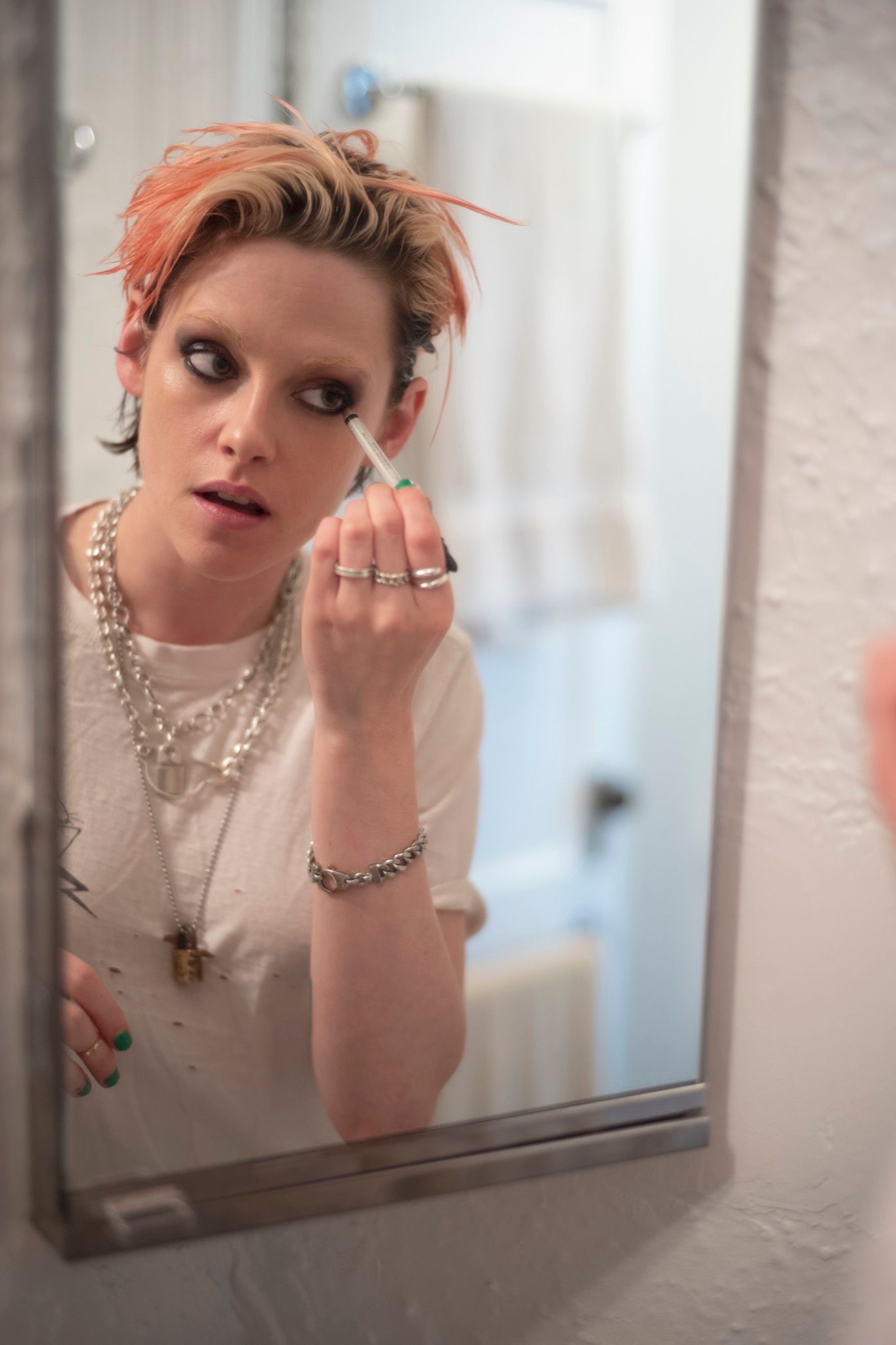
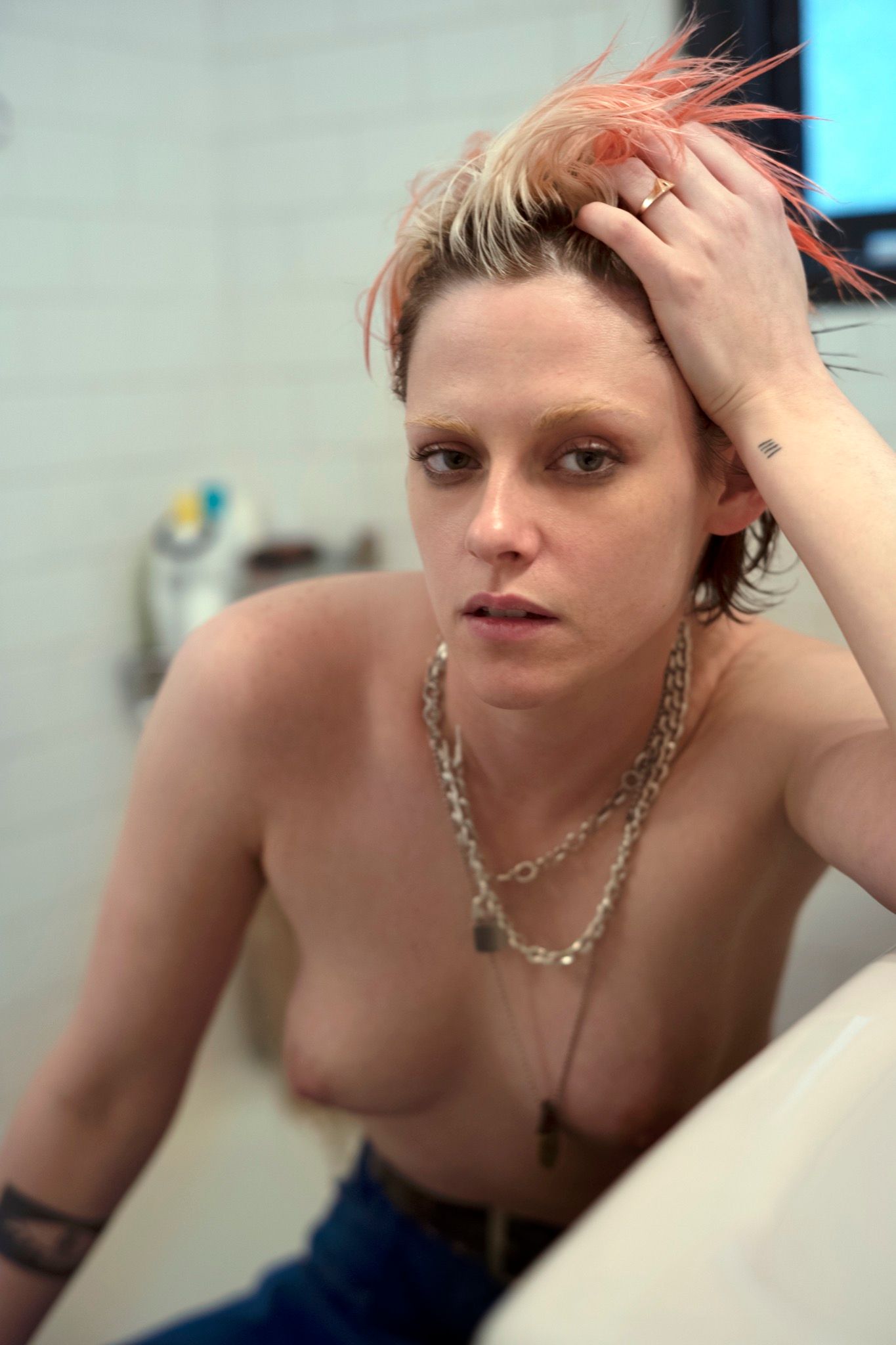
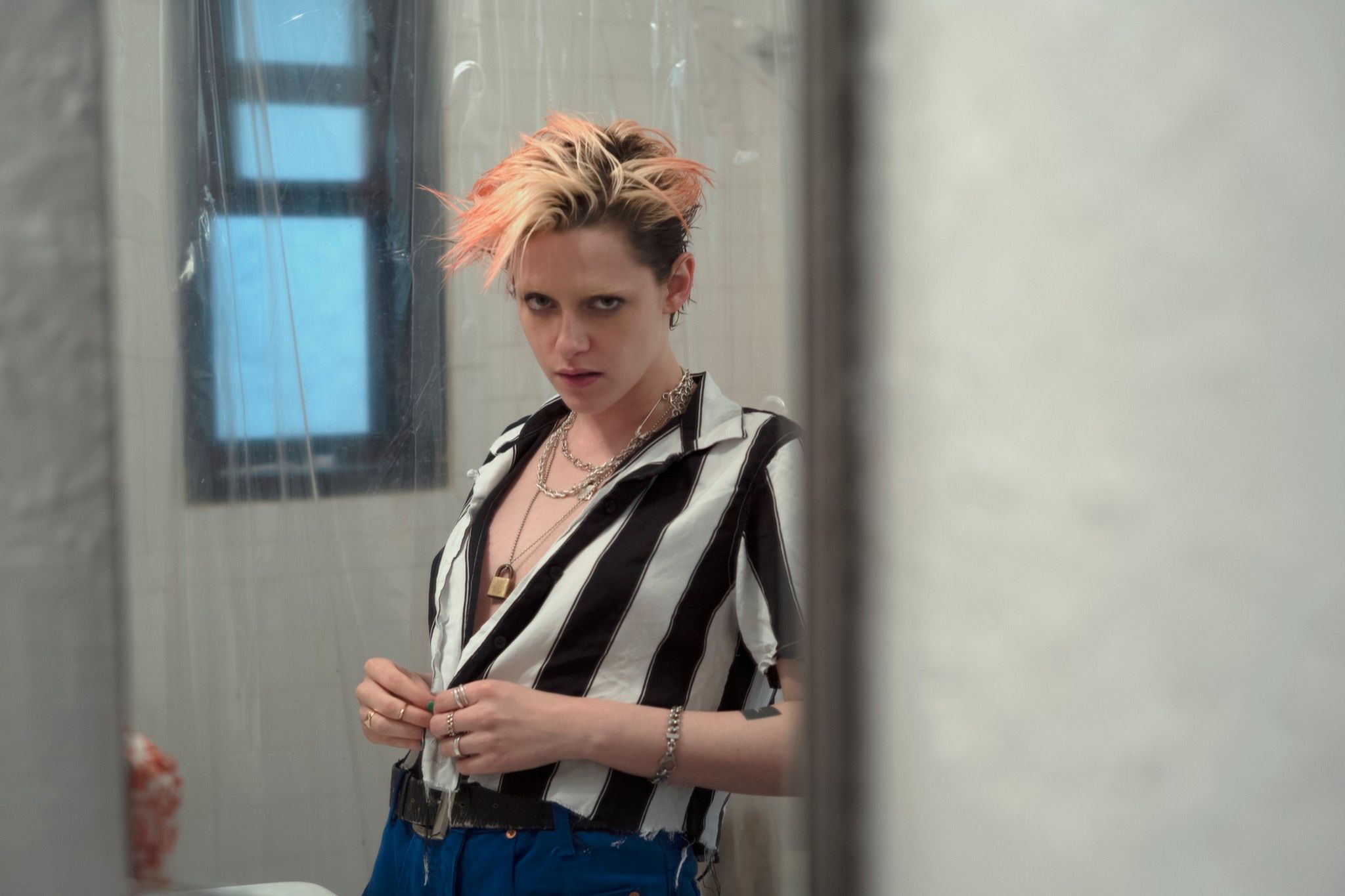
S: Right. “Why are you fucking with me?”
C: It’s so fun to play with all of these things. It’s like we’re getting to do it from a purely pleasure place. Kristen and I, we shot when she was a kid, when she was 16. That was pretty amazing. We both felt like we had a connection, and we cut through the crap of the people in the room – probably because we were both younger, and there was less attention on the work. There was less clothes, there was less fussing. I would say we had the best time we could have had under the circumstances of commercial shooting.
K: Totally. It was just like nobody really cared whether I was there. We were both doing our jobs.
C: And there are so many people that negotiate things that are happening in the room, that these two main people – the photographer, and the person in front of the camera – don’t have that much agency in the work. They have moments of asserting a certain kind of power –
K: Yeah, if you absolutely hate a pair of pants, or some shit. That’s about it.
C: Or if I absolutely think I can’t shoot in that room. Both of us have talked for at least a year about what it would be like to take pictures without people around telling us, “Go like this.”
K: Telling us what to do.
C: My thing was being curious about whether or not it would still feel the same. Would there still be a kind of apprehension from Kristen to be in a picture, or to be looked at? It’s completely different.
K: Completely. Also, when we’re doing something for Chanel, I want to fit into the Chanel narrative. That’s –
S: The story.
K: Yeah. And this is just pulling the layer back and being like, “Come hang out with us.” Which I find to be a very interesting experience. Who knows if other people will? This is what I find personally worth documenting. It’s so cool that we’re finding this congruent story. But here’s a weird thing: I don’t really have an inclination to want to express myself in a physically lyrical sense.
S: Like dancing.
K: Yeah, I guess I’m trying to describe dancing – if you took the idea of “dance” out of it, and thought, “if I was just an animal,” without any other examples of other animals dancing. I guess I was wondering, Collier, if you had that instinct, because you came to it late. I always sit in the corner. I don’t fucking dance. Sometimes I do, if Sav is around.
C: I didn’t have a hidden thing I wanted to pull out. I think I wanted to be physically freer than I was. I didn’t have a shape or an image to that.
K: You saw examples of that in dance.
C: I didn’t even see it in dance – I saw it by dancing.
S: There’s this part in the Kathy Acker interviews where she’s talking about getting really into bodybuilding. She says, “I’m trying to find a way to incorporate this into my work, but actually it’s always a translation, because it’s not the same language.” I really do think that’s true. It’s a sealed language. It is. Then, you translate it into words.
K: It’s like if you don’t speak French, and you want to read Camus, you’re never going to get as close to the [work] … The translation takes you a little further away from it.
S: And the space in between is mysterious because it’s structured differently.
C: I relate to what Kathy said because I think that what it is to dance, or to body build, is to say, “Look at me, acknowledge my body.” Most dance is about being up on stage and people watching your body move.
S: Not all dance. You can do it purely through feeling, too.
C: I came through it also by wanting to be looked at, and having been envious of so many artists.
K: [Collier’s] always [the one] looking. That’s the point, I think, of JT: Savannah going into that space and being looked at and seen as this person. It’s a tight rope walk into, “You’re not sure.”
S: Yeah. It was sort of an experience of, “I’m just going to go hang out in the dark.”
Made by COLLIER SCHORR, SAVANNAH KNOOP, and KRISTEN STEWART
Published by 032c WORKSHOP for 032c Issue #36 – Summer 2019: WORKING OUT LOUD
BUY YOUR FANZINE HERE.
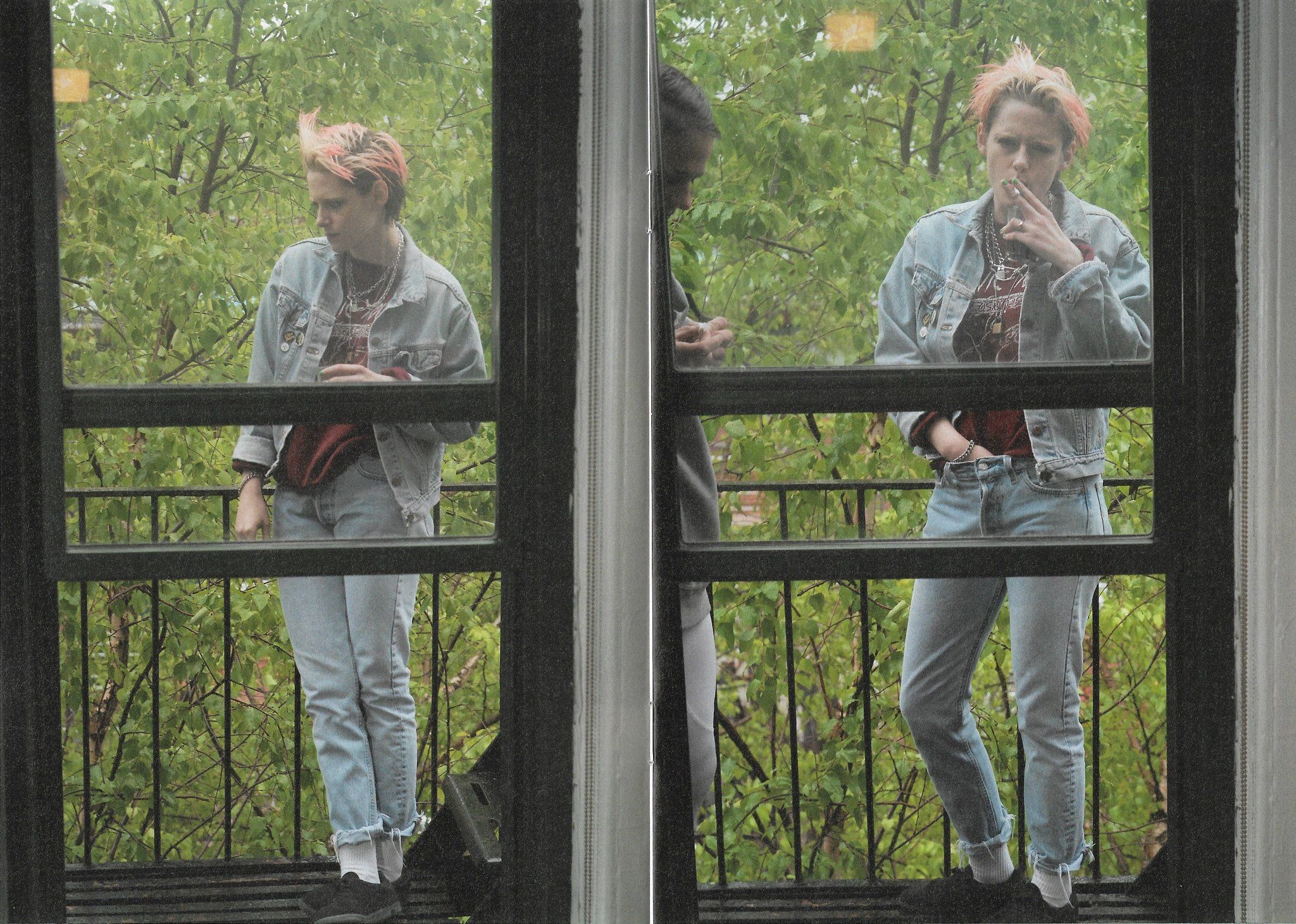
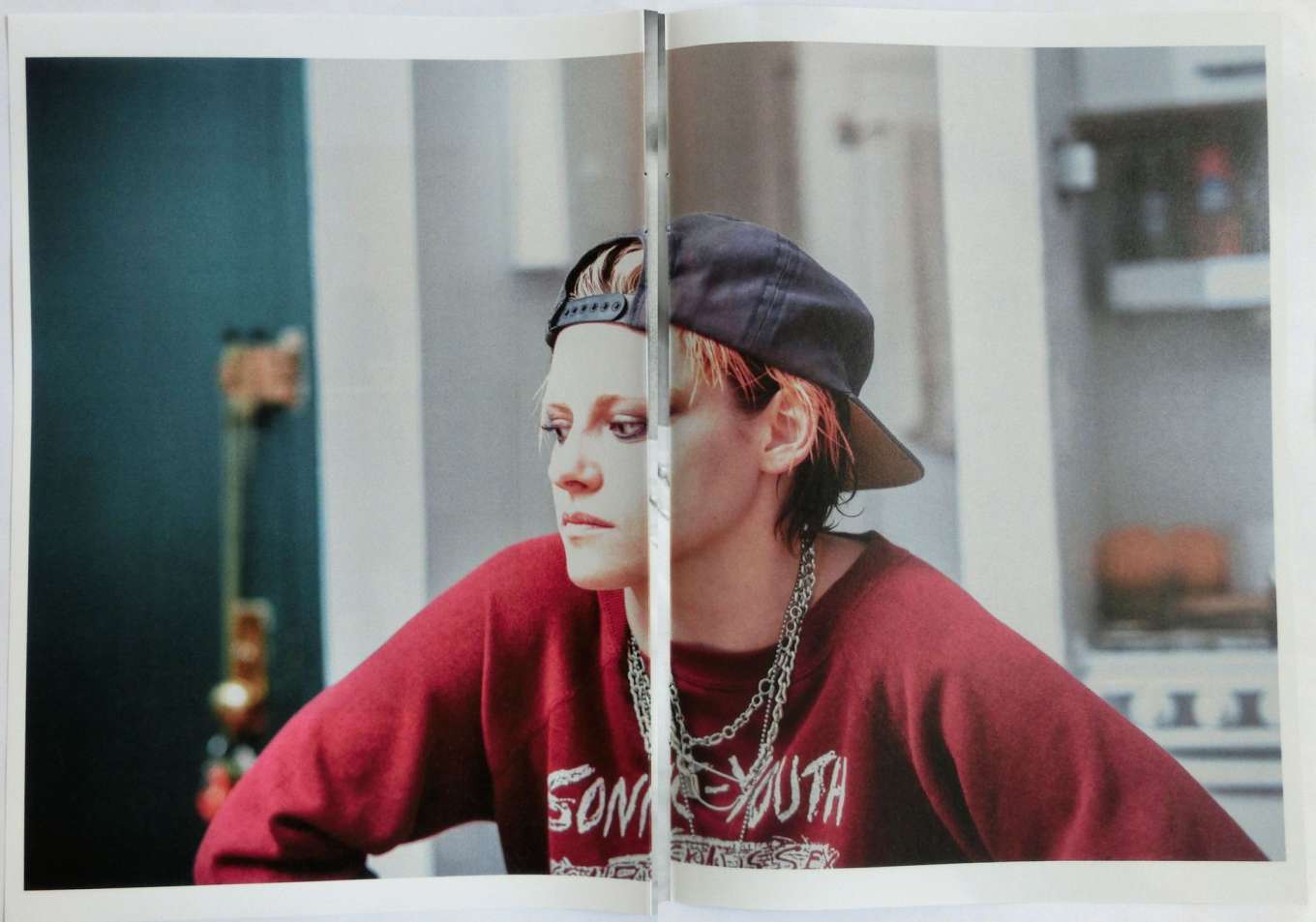
Credits
- Photography: Collier Schorr
